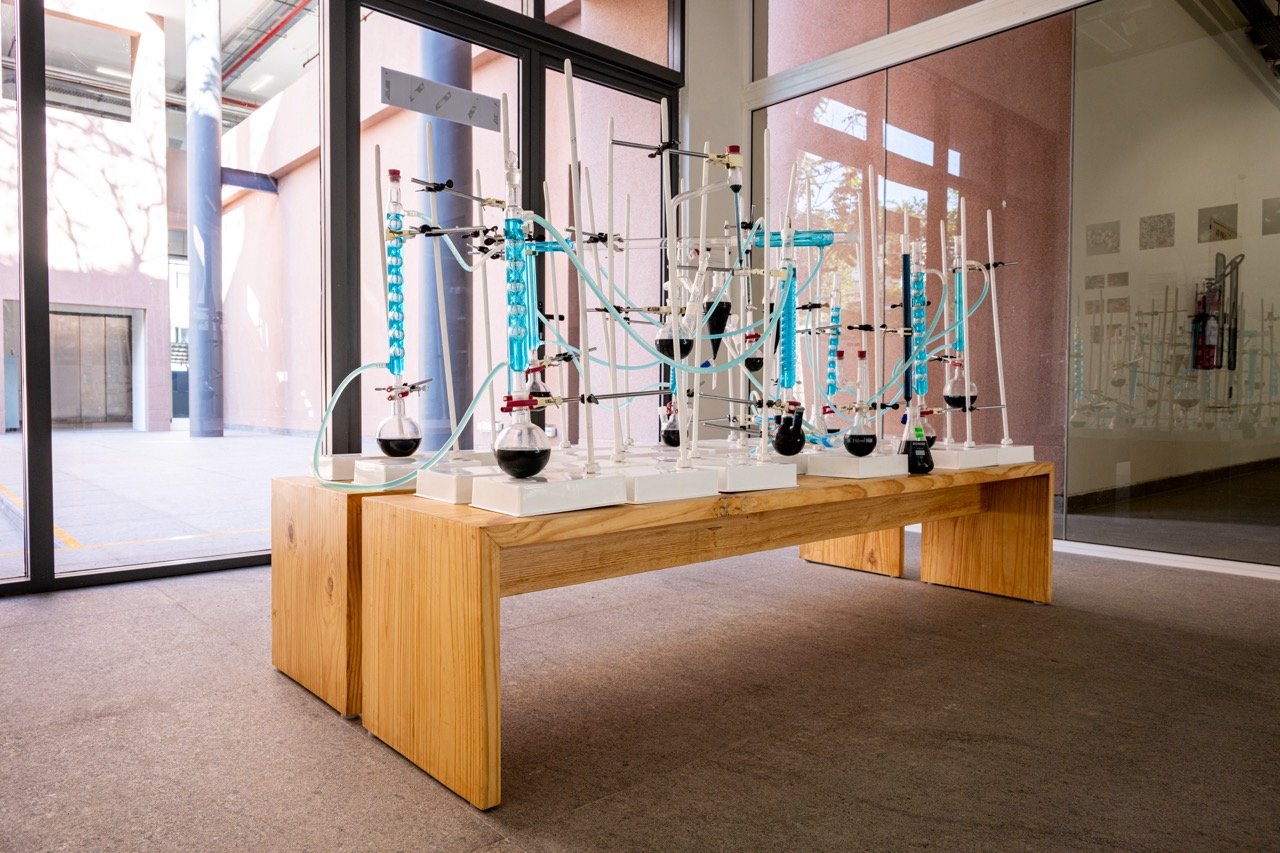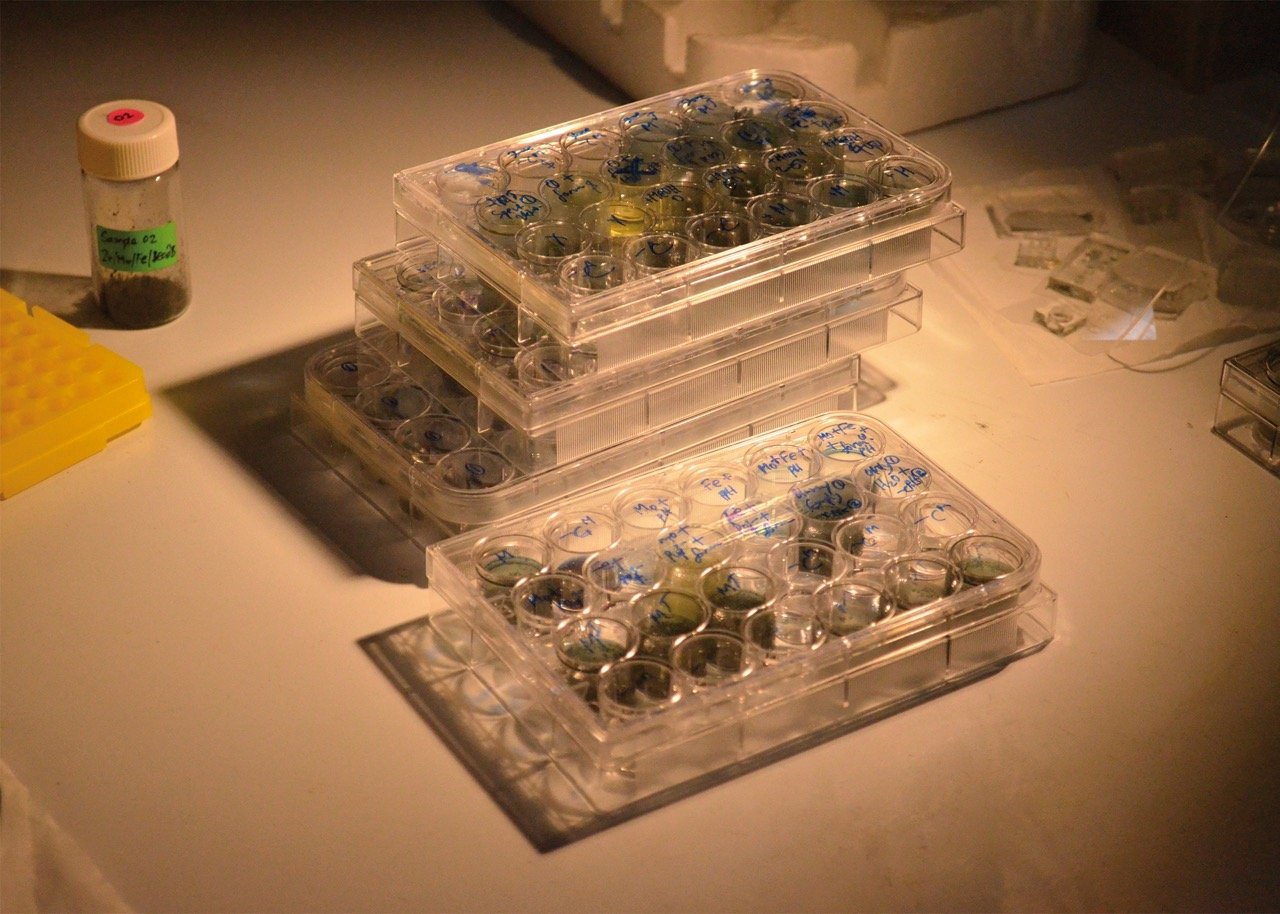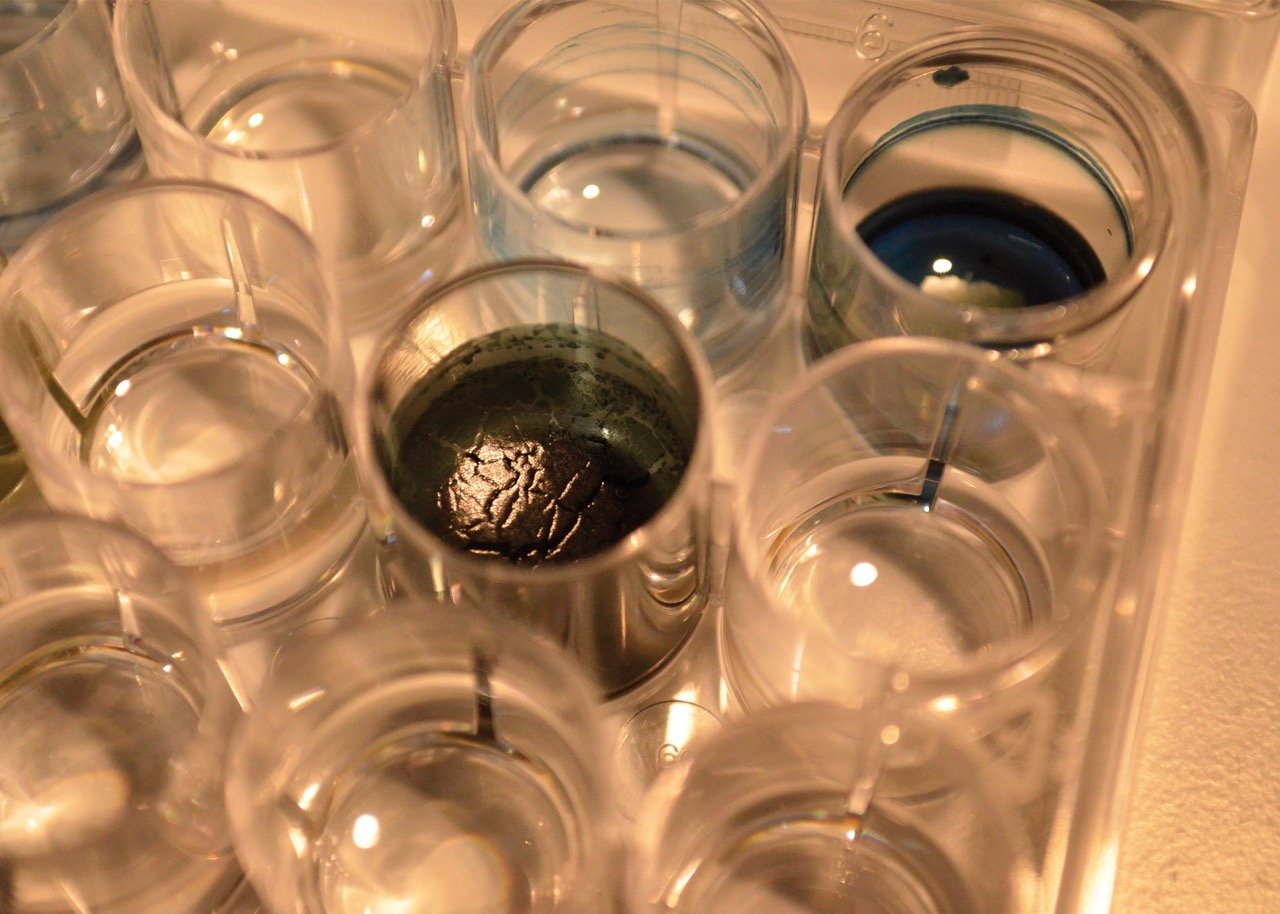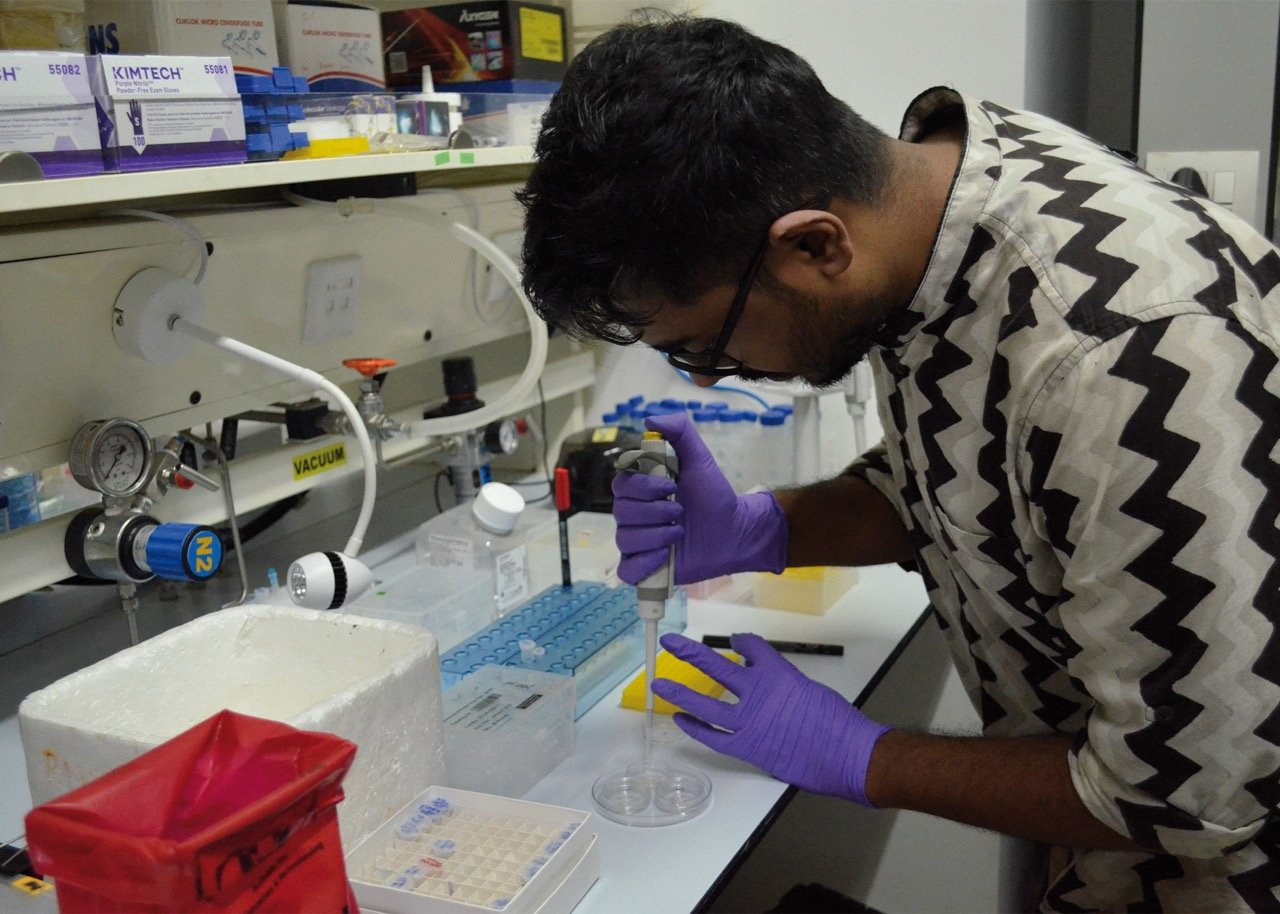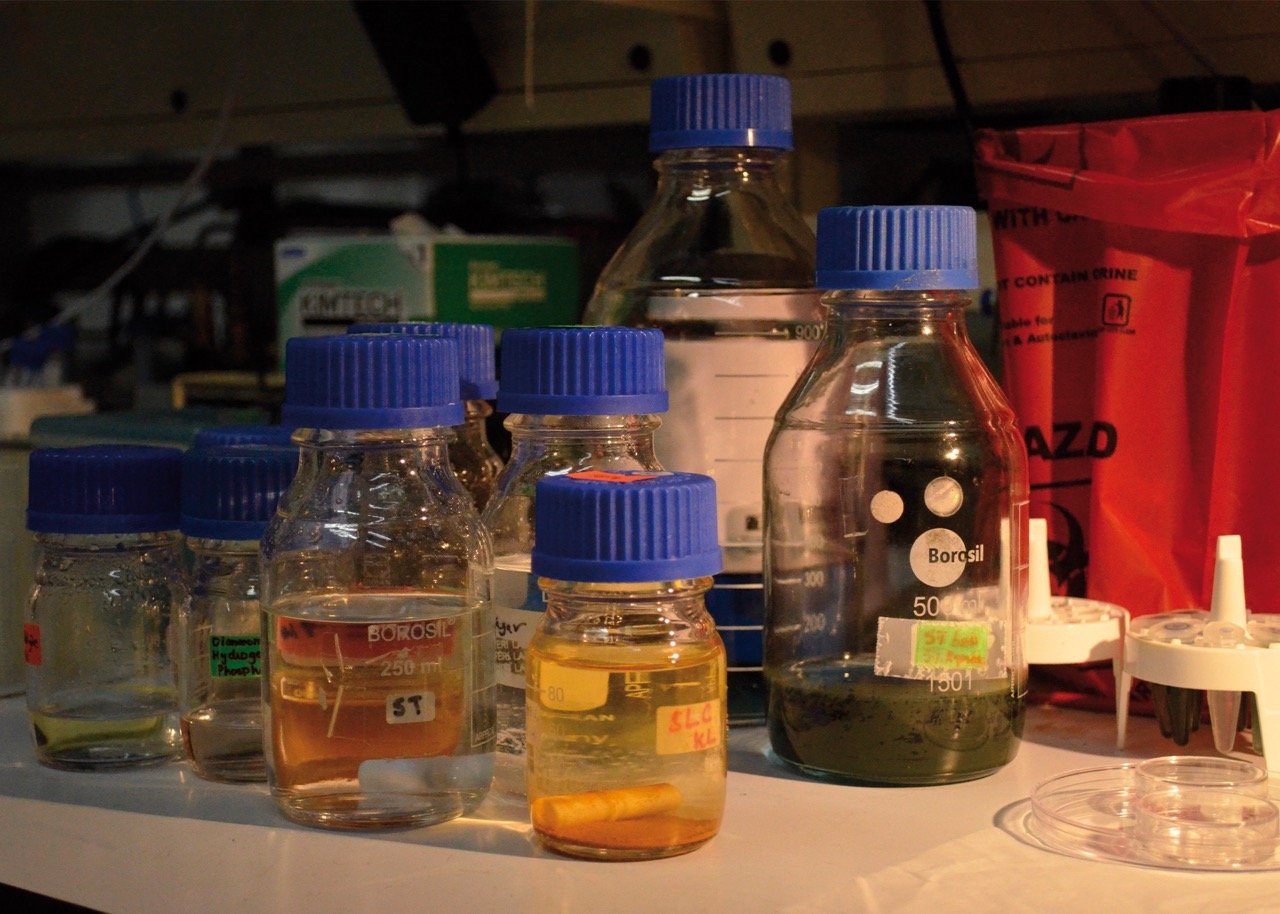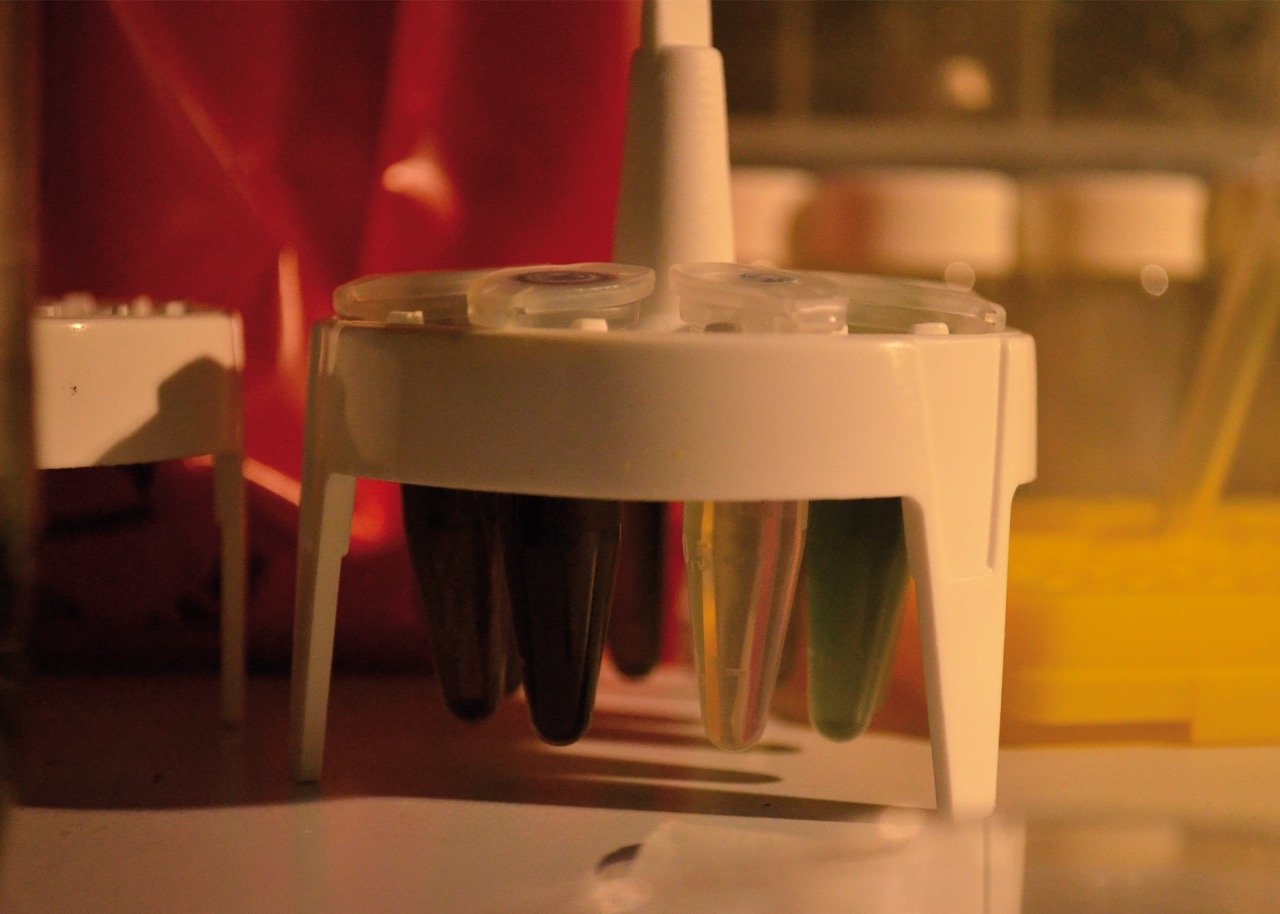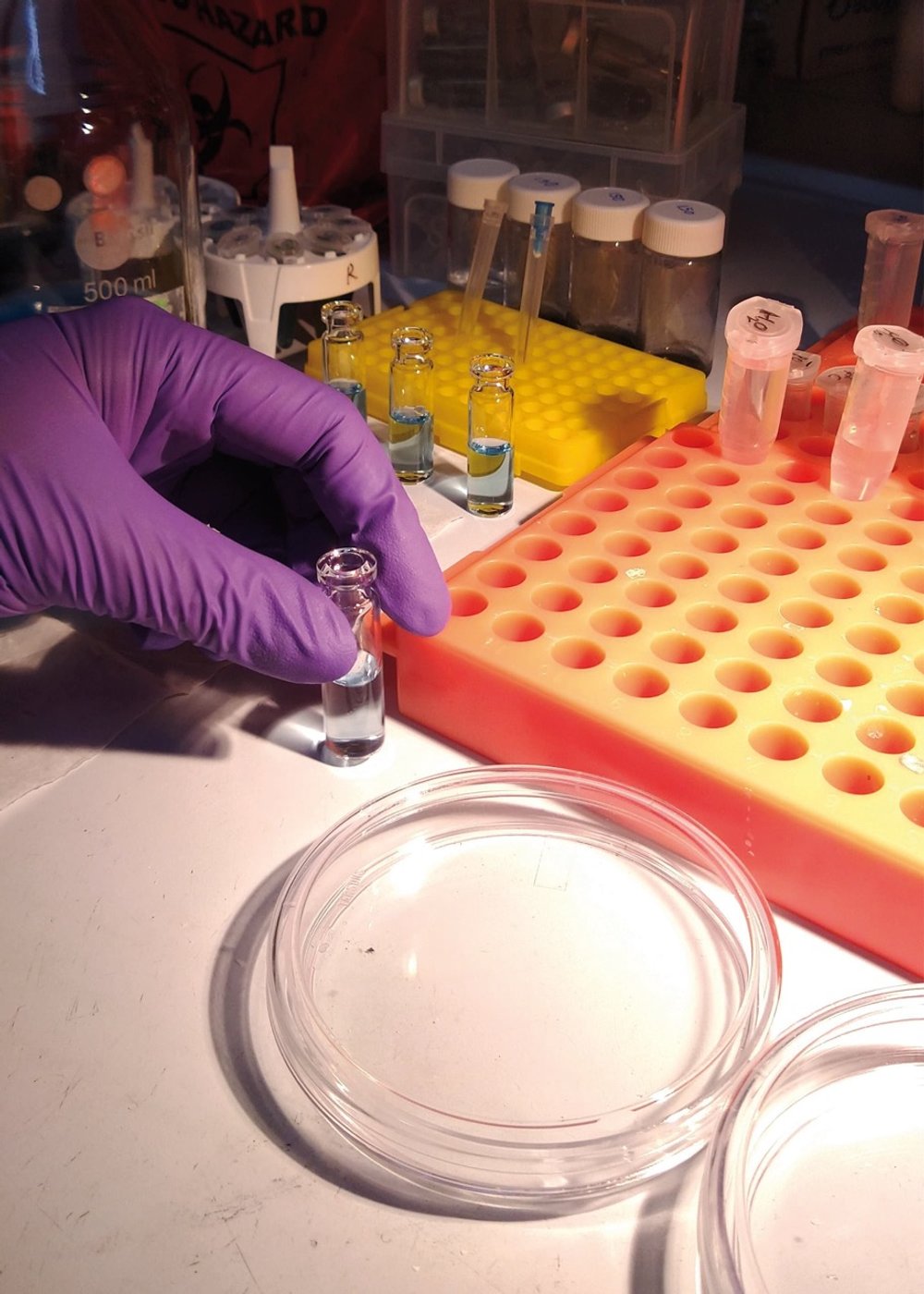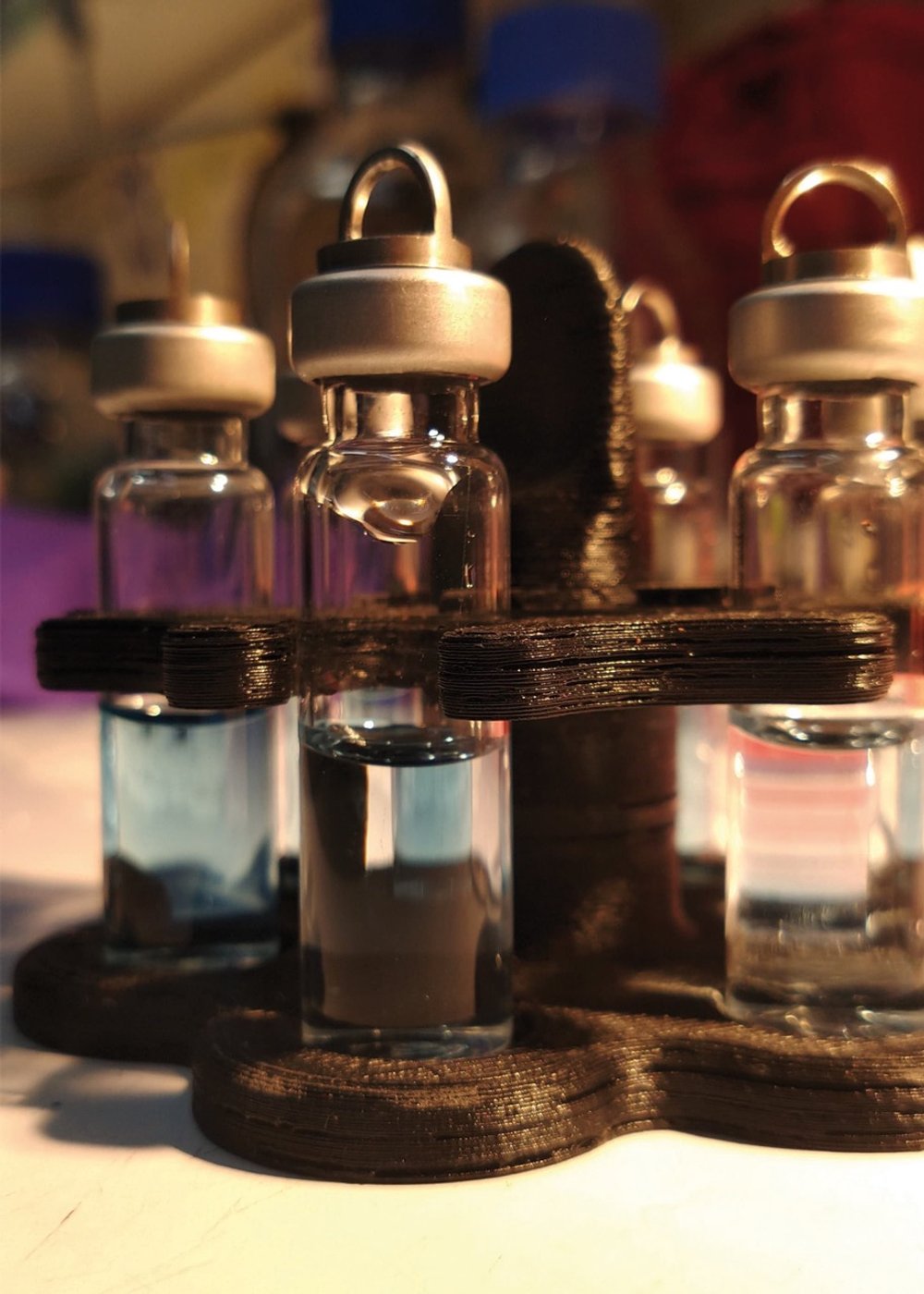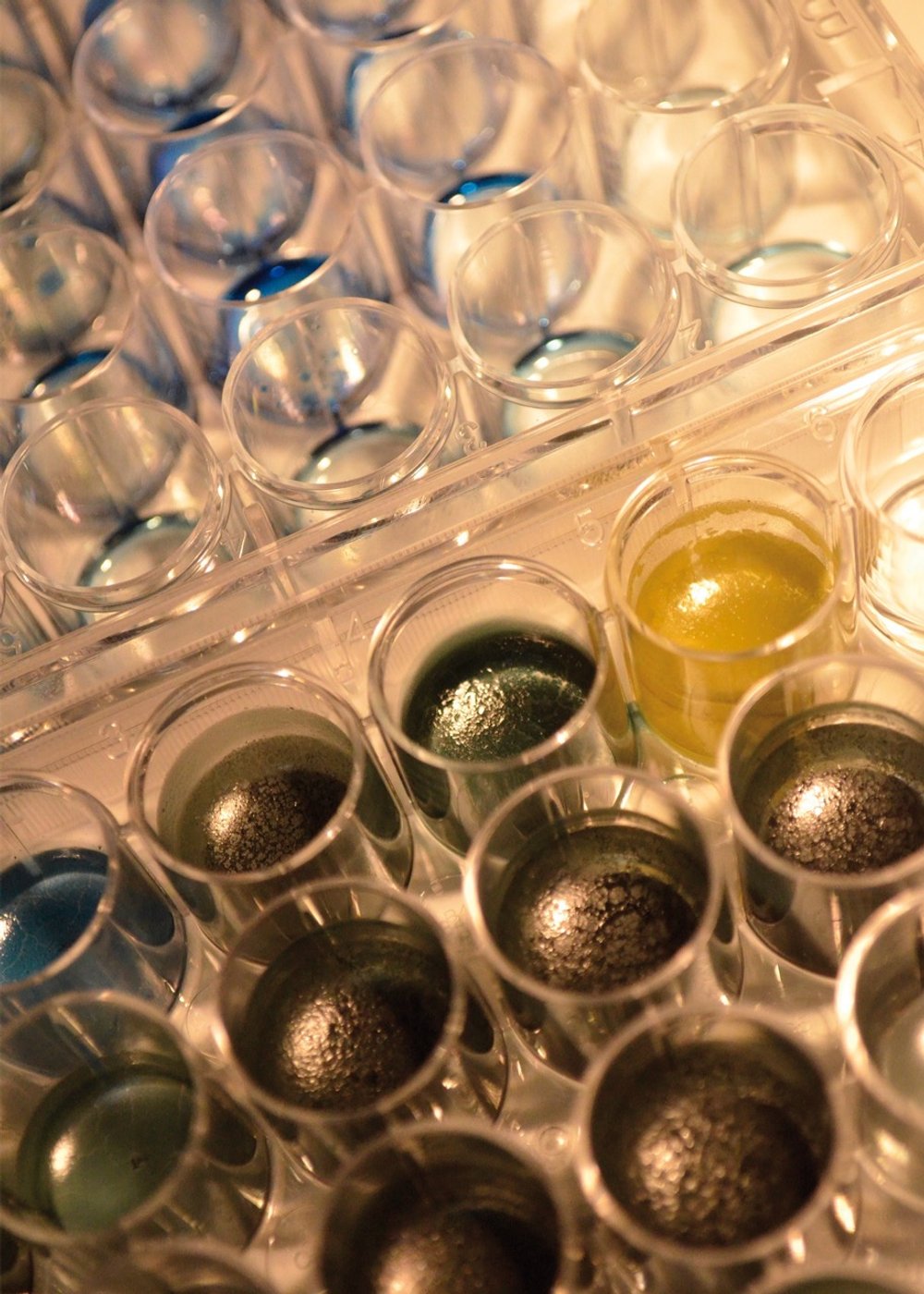Jīvāṇu
From the 1950s to the 1970s, chemists Krishna Bahadur and S. Ranganayaki conducted experiments at the University of Allahabad to explore the spontaneous origins of life-like properties from simple chemical mixtures or ‘abiotic soups’ containing carbon-based organic molecules, ammonia, phosphates and mineral salts. Exposing this ‘soup’ to sunlight resulted in the emergence of spherical units, dubbed as 'jeewanu'.
Bahadur and Ranganayaki claimed that the 'jeewanu' exhibited properties—metabolism, growth and division—crucial to primitive forms of life. These experiments have largely gone unnoticed and their claims are yet to be established unambiguously which calls for revisiting the research project.
Visitors witnessed the snapshots of this recreated ‘jeewanu’ experiment to ask: what makes life, and what role does carbon play in the origin of life?
Supported by the National Centre for Biological Sciences, Bengaluru.
Medium: Chemicals, Laboratory glassware
Year: 2023
Process
Team
Nayan Chakraborty
Scientist
Nayan Chakraborty's diverse interests guide him through various fields in search of intriguing patterns. Currently pursuing a Ph.D. at the Simons Centre for the Study of Living Machines, located within the National Centre for Biological Sciences at the Tata Institute of Fundamental Research in Bangalore, India, Nayan focuses on the enigmatic origins of life and complex systems. Alongside his academic endeavors, he serves as a chemistry consultant for law firms collaborating with the Third World Network, a global NGO dedicated to enhancing access to medicine. In his leisure time, Nayan finds joy in exploring new destinations, whether within the pages of a book or through the harmonies of a song.
Shashi Thutupalli
Scientist
Shashi Thutupalli is presently affiliated with the Simons Centre for the Study of Living Machines at the National Centre for Biological Sciences, Tata Institute of Fundamental Research in Bangalore, India. In 2011, he earned his Ph.D. in physics, specializing in active matter, from the Max Planck Institute for Dynamics and Self-Organization in Germany. Following this, he undertook a postdoctoral fellowship at Princeton University. Since 2015, Thutupalli has been leading a curiosity-driven research program in India, exploring topics related to the physics of active and living systems. His research particularly delves into the interplay between eco-evolutionary processes and emergent mechanics.

